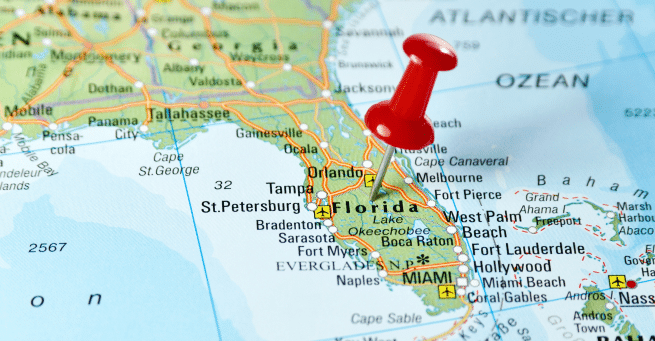Introduction
If you’re planning to become an insurance agent in Florida, the first step is getting clear on the license requirements. Whether you’re aiming to sell life policies or help folks with car or home coverage, every license has its own rules. Missing one step or misunderstanding the process could delay your application or exam day. That’s why it’s helpful to walk through everything you’ll need up front, so there are fewer surprises down the line.
Florida has a specific structure when it comes to insurance licensing, and knowing what kind of license you need is the starting point. From pre-licensing classes to state exams, each part supports the next. So whether you’re just exploring your options or are ready to jump into prep, this breakdown will help you understand what’s expected and how to plan your next moves confidently as you meet the state’s insurance licensing requirements.
Types Of Insurance Licenses In Florida
Choosing the right license depends on what kind of insurance work you want to do. Florida offers several types, and each one comes with its own set of responsibilities. While many applicants focus on one at a time, some people eventually choose to get multiple licenses if they want to handle different policy types.
Here are the main license types most people pursue in Florida:
– Life Insurance License: This lets you sell life insurance policies and annuities. If you’re helping clients plan for long-term protection or their retirement, this is the right license.
– Health Insurance License: This license allows you to offer products like major medical, Medicare supplements, and other health-related plans.
– Property and Casualty (P&C) License: This is for agents who want to handle home, auto, commercial property, or liability insurance. If you’re looking to support individuals or businesses managing everyday risks, this license is for you. All-Lines Training offers pre-licensing courses for Florida Property & Casualty in both English and Spanish.
– Florida 4-40 Customer Representative License: Most insurance agencies in Florida require administrative employees to hold a 4-40 customer representative license for employment. Obtaining this license is a great way to break into the insurance industry. Working as a customer rep will help you learn about the industry and insurance policies and give you real-world experience should you decide to become a full-fledged agent. All-Lines offers the 4-40 pre-licensing course, with state exam so you can complete everything online.
– Adjuster License: If you’re more interested in investigating claims and helping process them on behalf of carriers or clients, the adjuster path might fit better than traditional sales roles. Our sister company, AdjusterPro, offers courses that include the Florida state exam for those looking to become insurance adjusters.
Some licenses also come with specialty tracks, like public adjusters or customer representatives. These do have separate requirements, so it’s a good idea to double-check which path matches your career goal before starting an application.
For example, if you want to help people find both health and life insurance, it may make sense to go for the combination Life, Health, and Variable Annuities license. That way, you’re covered for the full conversation with your client, not just part of it.
Understanding what each license category allows will help you decide which training and application materials to pursue. That focus will save you both time and stress as you move through the steps.
Pre-Licensing Education Requirements
Before you can take the state exam for most Florida insurance licenses, you’ll need to complete a pre-licensing course. These aren’t just a box to check – the state requires them before you can even register to take the state exam. Think of them as your foundation. They introduce the laws, terms, and rules that Florida expects you to understand before granting a license.
Each license type requires a different number of course hours. For instance:
– Life and Health combined licenses usually require 60 hours of instruction
– Property and Casualty/General Lines licenses also hover around 200 hours
– The Customer Representative license only requires 40 hours
These courses usually include topics like policy features, ethical practices, state-specific laws, and how to handle client conversations. Some classes are offered online so you can study at your own pace, while others might follow a live format.
If you’re working a full-time job or juggling family duties, the flexible schedule of an online course might be helpful. Just make sure you pick one that’s approved by the Florida Department of Financial Services so your hours are counted when you apply for the exam.
Once you finish the course, you’ll get a certificate of completion. You’ll need that document before you can book your state exam, so don’t misplace it. It confirms you’ve done the prep and are ready for the next step.
Steps To Apply For A License
Once you’ve finished your pre-licensing course and received your certificate, the next step is officially applying for your Florida insurance license. The process is pretty straightforward, but each step does require attention. Skipping anything could delay your approval or exam window.
Here’s a basic breakdown of what to expect:
1. Submit Your Application
You’ll need to complete your application through the Florida Department of Financial Services (DFS) portal. Make sure to choose the correct license type. If you’re unsure which one fits your goals, take another look at the license categories discussed earlier.
2. Pay the Required Fees
The application and fingerprinting steps come with set fees. These are required at the time you apply. Be sure to keep your receipts since some employers may reimburse you once you’re hired.
3. Complete Fingerprinting and Background Check
Florida requires a background screening for all applicants. You’ll schedule live-scan fingerprinting through a DFS-approved vendor. It’s best to get this done quickly since your background check must clear before you’re allowed to take the state exam.
4. Wait for Eligibility Notification
After your background check is complete and your application is reviewed, you’ll receive notice from the DFS once you’re eligible to schedule the state licensing exam.
Doing things in the correct order makes a big difference. If you accidentally skip fingerprinting or turn in the wrong paperwork, you may have to restart part of the process. Give yourself enough time to gather all required documents and double-check the instructions on the DFS portal so everything is aligned the first time through.
Exam Preparation And Testing
Once you’ve been approved to sit for the state exam, it’s time to focus on how you’ll prep. Florida’s insurance exams are made to test both your general knowledge and state-specific rules. Each license exam has its own structure, but they commonly include multiple-choice questions and a time limit.
To boost your odds of passing, try the following:
– Use the study materials that match the license type you’re going after
– Take practice exams that simulate the style and format of the real test
– Break your study time into short daily chunks instead of long cram sessions
– Focus on weaker areas as you review. Don’t just re-read what you already know
– Read test questions fully. Sometimes the difference between two answers comes down to just one word
Testing locations across Florida offer digital exam centers, and some licenses allow for remote testing if that works better with your schedule. Passing scores will be shown at the end of your test, and if you pass, you’ll move forward with having your license issued.
Give yourself some breathing room the night before the exam. Whether it’s a walk, shutting off your phone early, or preparing your test-day documents ahead of time, small steps to reduce stress can make a big difference when you’re sitting down to focus.
Starting with the Right Steps Makes a Big Impact
Getting your Florida insurance license isn’t just about passing a test. It’s a full process that teaches you the rules, the risks, and how to actually help people make good insurance decisions. When you take time to go through it step by step, you don’t just earn a license. You build a base that can carry through your whole career.
Make a checklist early on and track each phase: picking your license path, signing up for education, applying, and preparing for your exam. Once everything is done, you’ll have the tools to register, renew, and stay licensed in the future. That long-term success starts with a smart entry point.
Whether you’re aiming to focus on life policies or expand into home and auto, the state licensing process gives you the structure to get started the right way. It requires time and effort, but by working through each phase carefully, you set yourself up to feel confident and ready once your license is issued.
To make sure you’re set up for success, All-Lines Training offers step-by-step guidance and flexible prep options to help you meet Florida’s insurance licensing requirements. Explore how our support and training can streamline your journey by learning more about insurance licensing requirements.



